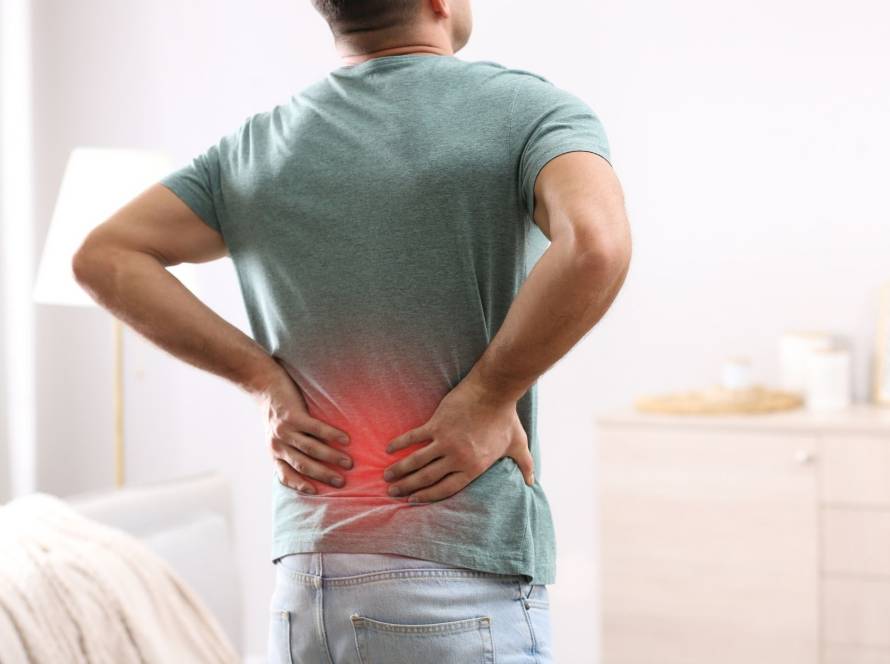Modern life demands better stress management techniques. Studies reveal that British people now spend more time with their devices than sleeping. This constant digital connection, among other daily pressures, increases chronic stress levels by a lot and affects millions of people worldwide. Research links chronic stress to several serious health conditions, like autoimmune diseases, migraines, hypertension, coronary heart disease and stroke.
This piece explores practical, evidence-based methods to reduce stress and anxiety. These methods offer clear paths toward a calmer, healthier life based on recent scientific research.
What is stress and how it affects the body
Our body naturally reacts to threats or pressure through stress. While our ancestors used this survival mechanism differently, we face new kinds of pressures in today’s world.
Acute vs. chronic stress: key differences
Acute stress comes and goes quickly, like rushing to meet deadlines or avoiding car accidents. Our body responds with increased heart rate, stronger heart contractions and sharper alertness. This quick stress can help us by giving our immune system a boost and sharpening our focus.
Chronic stress works differently. It builds up over weeks, months or years from ongoing problems like money troubles, tough jobs, or rocky relationships. Our body keeps producing stress hormones, which damages several body systems. Without breaks between stressful events, our body’s natural stress response becomes harmful and creates serious health issues.
The role of cortisol and the HPA axis
Our stress response works through a complex system called the hypothalamic-pituitary-adrenal (HPA) axis. Our brain notices danger and triggers the hypothalamus to release corticotropin-releasing hormone (CRH). This hormone tells the pituitary gland to make adrenocorticotropic hormone (ACTH). ACTH then signals our adrenal glands to release cortisol, known as the “stress hormone”.
Cortisol plays vital roles. It mobilizes energy, increases blood sugar and controls immune responses. Our body normally releases cortisol in pulses following a daily rhythm. Chronic stress disrupts this balance and creates abnormal cortisol patterns that affect many body functions.
Impact on immune, cardiovascular and brain health
Long-term stress weakens our immune system by a lot. Stress hormones boost immune activity at first, but ongoing exposure reduces lymphocyte levels and changes cytokine production. These immune system changes make us more likely to get infections and heal slower.
Our heart health suffers from chronic stress too. It causes inflammation in blood vessels, especially around the heart. Stress hormones narrow our blood vessels and increase clotting, which raises our risk of heart attacks and strokes. High blood pressure from ongoing stress damages our artery walls over time.
Our brain changes under chronic stress. Parts of our brain that handle memory and planning, the hippocampus and prefrontal cortex, can shrink. The amygdala, which processes fear and anxiety, might grow larger. These brain changes affect how well we think, pay attention, make decisions and control emotions.
Learning about these biological changes shows why good stress management helps maintain our health and might help us live longer.
Physical strategies to reduce stress
Physical activity stands out as a natural stress reliever that works wonders on multiple bodily systems responsible for stress response. Our daily routine should include regular movement because it creates powerful changes in our body that fight the harmful effects of chronic stress.
Exercise and movement: aerobic, strength and yoga
Regular aerobic exercise reduce stress levels substantially when it stimulates the production of endorphins, our brain’s natural mood elevators. Research shows that aerobic activities lower cortisol levels and positively affect parasympathetic nerve activity that helps us relax. The benefits go beyond immediate relief. Exercise stimulates new blood vessels to grow. These vessels carry oxygen to our brain and can promote adult neurogenesis, which creates new brain cells connected to better mood and wellbeing.
Studies show that an 8-week resistance training program decreased anxiety and self-attentiveness in elderly participants. The stress-reducing benefits of resistance training become stronger as our strength improves over time.
Yoga affects our brain through both top-down and bottom-up processes. Scientists have found that regular yoga practice increases activation in the prefrontal cortex, which fights against stress’s negative effects on the brain. Our brain’s structure and function change with yoga and the hippocampus (the part handling memory and learning) grows larger.
Sleep hygiene and circadian rhythm alignment
Sleep problems and stress feed each other in a vicious cycle. Stress disrupts our sleep quality, while lack of sleep increases stress hormone production. Our sleep schedule should stay consistent, even on weekends. A calming bedtime routine helps us sleep better. We should limit screen time before bed and create the right environment, quiet, dark and cool.
Nutrition: anti-inflammatory foods and hydration
Anti-inflammatory foods help our body fight stress-related inflammation. The best choices include fatty fish packed with omega 3s, colorful fruits, vegetables, nuts and spices like turmeric. Scientists found that our hydration level directly affects how well our body and mind handle stress. Our cortisol levels rise with even mild dehydration (1/2 liter reduction), which adds to stress. Our body needs water to convert tryptophan into serotonin, the natural feel good neurotransmitter.
Mental and emotional techniques for stress management
Our brain’s stress response mechanisms can benefit a lot from mental approaches to stress reduction. Recent research shows these techniques actually change our brain’s structure and function.
Mindfulness and meditation practices
Mindfulness meditation creates a gap between our thoughts and reactions. This helps us observe our mental activity without judgment. The practice makes our amygdala smaller, the brain’s stress-response hub. This change makes us less reactive to stress triggers. Regular meditation improves our attention span and sleep quality. It also reduces job burnout and boosts diabetes control.
Breathing techniques and progressive muscle relaxation
Our autonomic nervous system responds directly to controlled breathing. The 4-7-8 technique works well, breathe in for 4 counts, hold for 7, breathe out for 8. This method naturally slows our breathing rate and calms our nervous system. People with high blood pressure, migraines and eating disorders can find relief through diaphragmatic breathing. This technique activates our parasympathetic nervous system.
Progressive muscle relaxation works by tensing and releasing different muscle groups. Studies show we can reduce anxiety and sleep better after just three days of practice. This method helps us spot tension patterns in our body.
Cognitive reframing and journaling
Cognitive reframing helps us see stressful situations differently. Two effective approaches stand out: positive reframing helps us find good things in bad situations, while exploring evidence helps us question our assumptions. This technique changes how our body physically responds to stress by shifting our perception.
Studies show writing in a journal for 15 minutes daily over 12 weeks reduces anxiety and mental distress. People with chronic conditions find expressive writing especially helpful. It lets them process emotions without getting stuck in negative thoughts. Writing down our thoughts helps clarify feelings, solve problems better and accept negative emotions.
Supplements and natural interventions
Natural supplements can work with physical and mental techniques to help manage stress. Research shows specific compounds work at the cellular level to influence how our bodies respond to stress.
Adaptogens: ashwagandha, rhodiola and holy basil
Adaptogens are plant substances that help our body fight physical, chemical and biological stressors. These herbs work with the hypothalamic-pituitary-adrenal axis that triggers our body’s stress response. Clinical trials show that ashwagandha substantially reduces cortisol levels and anxiety symptoms. Studies demonstrate it can lower stress levels compared to placebo groups. The optimal benefits come from taking 500-600 mg daily.
Rhodiola helps boost stress resilience and mental performance. It protects neurotransmitters like serotonin and dopamine and reduces stress-related fatigue. Taking 200-250 mg twice daily improves mood stability and cognitive function.
L-theanine, magnesium and omega-3 fatty acids
L-theanine, a green tea amino acid, helps us relax without making us sleepy. Studies show taking 200 mg daily reduces stress symptoms and boosts cognitive performance. Our brain produces more alpha waves associated with relaxation when we take L-theanine.
Magnesium helps control cortisol and maintains neurotransmitter balance. It reduces glutamate (excitatory) release while supporting GABA (inhibitory). This action mirrors some anti-anxiety medications.
Omega 3 supplements help reduce inflammation during stressful times. A controlled study found 2.5g daily lowered cortisol levels by 19% and reduced inflammatory IL-6 by 33% during acute stress.
Herbal teas and aromatherapy
Some teas contain compounds that affect our stress response. Green tea provides L-theanine with small amounts of caffeine and regular drinkers show lower stress levels consistently. Holy basil (tulsi), chamomile and lavender teas work well too.
Lavender aromatherapy shows measurable changes in stress markers. Studies prove it lowers blood pressure and heart rate in intensive care patients.
The key to reducing stress isn’t finding one perfect solution. Scientists have found that combining different stress-management techniques works better than relying on just one approach. Creating a tailored stress-management plan based on scientific evidence helps secure our long-term health and longevity. While chronic stress poses real health risks, these strategies offer a clear path to a calmer, healthier life in today’s challenging world.


